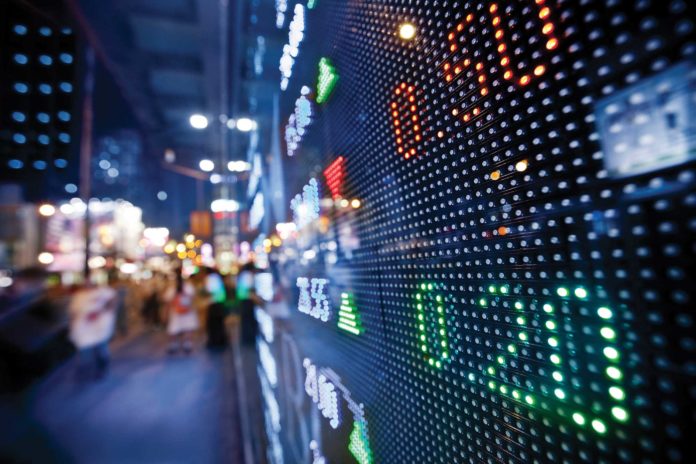Asian markets rose again Wednesday, buoyed by a further easing of coronavirus lockdown measures, though the advances remain capped by concern that the reopening could spark a second wave of infections.
Traders brushed off more data showing the gaping hole being blown in the global economy that is also seeing companies either pull their earnings reports or provide grave forward guidance as demand is battered. Equity markets have broadly moved into a bull market, having bounced more than 20 percent from their March lows, thanks to multi-trillion-dollar stimulus from governments and pledges of extra support from central banks. Adding to the relatively upbeat mood is news that countries are beginning to slowly re-emerge from the crisis.
As sunseekers flocked to beaches in Australia and New Zealanders ate from reopened takeaways, French Prime Minister Edouard Philippe said Tuesday that shops could reopen on May 11, following an easing up in Italy, Germany, Spain and parts of the United States. The moves come as the rate of infections shows a general pattern of slowing, following a weeks-long shutdown.
“The whole idea of returning to work has aroused the fancy of many investors. And while no one expects the global economy to immediately time shift back to January 2020, market reopenings are positive,” said Stephen Innes of AxiCorp. However, he did warn that “over the next few weeks, markets are going to struggle for direction while the debate over easing lockdown restrictions continues. Fundamentally, investors are caught in the same pickle as governments who have to balance the economic risks with the chances of the second round of infections”.
Hong Kong and Shanghai rose 0.7 percent each, while Sydney, Seoul and Taipei were all up more than one percent. Manila, Jakarta and Singapore were also in positive territory, though Wellington was hit by profit-taking following a more than three percent surge Tuesday.
Tokyo was closed for a public holiday. Investor attention is now on the release later in the day of US growth data, which is expected to show the world’s top economy contracted in the first three months of the year. Also, the Federal Reserve will end its latest policy meeting, with traders looking to see if it has any more words of comfort for markets after pledging financial backstops to banks, businesses and local and state governments. The Fed has also embarked on a massive bond-buying scheme, essentially allowing the government to print money.
“While there is a minority view that the Fed will offer some firmer guidance of the future pattern of… bond purchases, the consensus view is that there will be no new policy initiatives out of this meeting,” said Ray Attrill of National Australia Bank.
The crude market’s rollercoaster ride saw US benchmark WTI surge more than 15 percent, boosted by bargain-buying, though there are few expectations for a sustained recovery with storage facilities close to bursting and demand all but wiped out at the moment. And analysts said massive production cuts agreed by top producers earlier this month were not likely to show any benefits for a few weeks, meaning prices will likely continue to fluctuate for some time.




